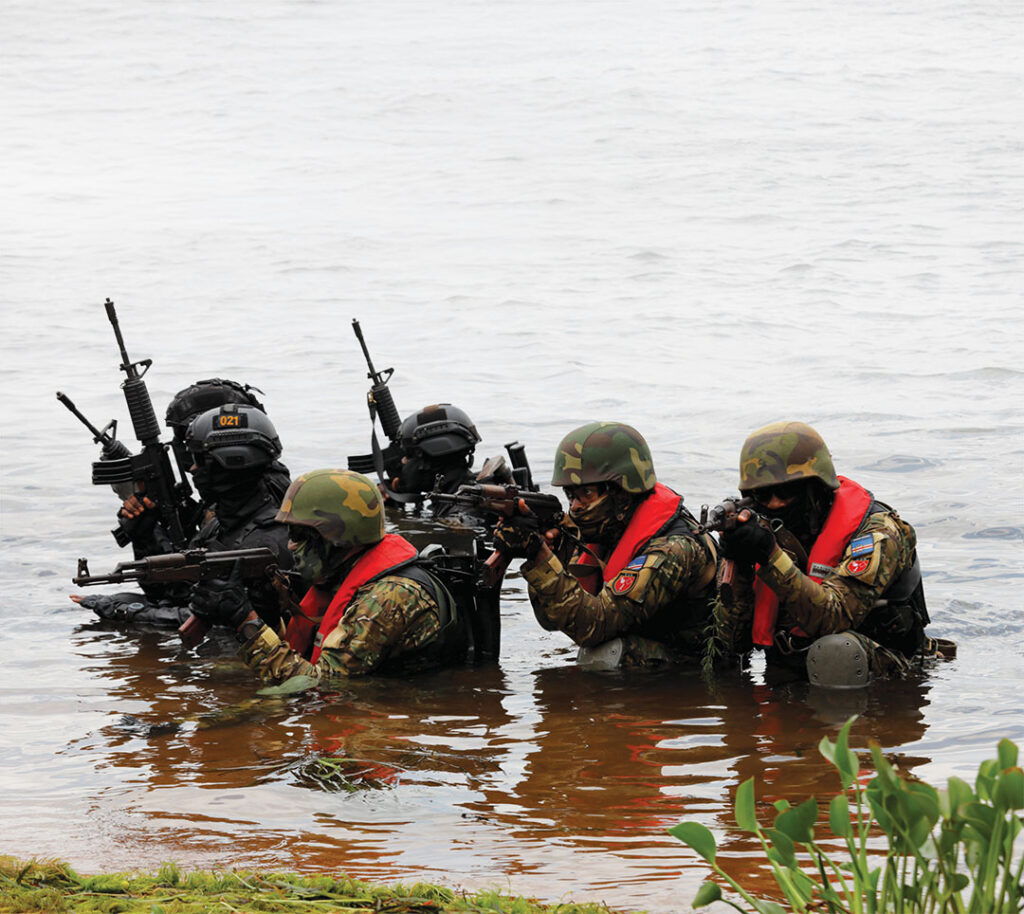Attacks in the Red Sea by Houthi militia have disrupted world trade on an enormous scale. The terrorists have breached sea lanes through the Gulf of Aden to the Indian Ocean. They have forced ships to alter their courses, adding as much as two weeks and thousands of nautical miles to shipping routes.
The Houthis have hit more than 100 ships in the Red Sea, Gulf of Aden and Arabian Sea. The attacks by the Yemen-based Houthi militia have exposed the problems 37 African coastal countries face in providing security to their vast coastlines and maritime economic zones.
Beyond terrorism, African coastal nations face threats such as piracy, toxic waste dumping, illegal fishing, poaching, smuggling, and trafficking in humans, drugs and arms. Bad actors encounter few patrol ships in the vast waters of Africa’s coastlines.
“Maritime security is vital to the African continent — sometimes referred to as the planet’s largest island,” wrote Francois Vreÿ and Mark Blaine in a report for the Africa Center for Strategic Studies. “The sudden escalation in attacks has revived threats … [and] revealed the threadbare nature of African maritime security — the impacts from which are not just felt in the Red Sea but across the entire continent.”
Governments have come to recognize that their maritime security forces are underfunded for the task at hand. African countries traditionally have had to devote most of their security funding to their armies, with their navies and coast guards left with limited patrol fleets and staffing.
One alternative to traditional government-financed maritime security is to bring in partners from the private sector to share the responsibilities. Public-private partnerships, or PPPs, use academics, private-sector expertise and investment to reduce the financial burden on governments on a range of projects, including energy generation and infrastructure maintenance. Researchers say that African countries can use PPPs to improve maritime security.
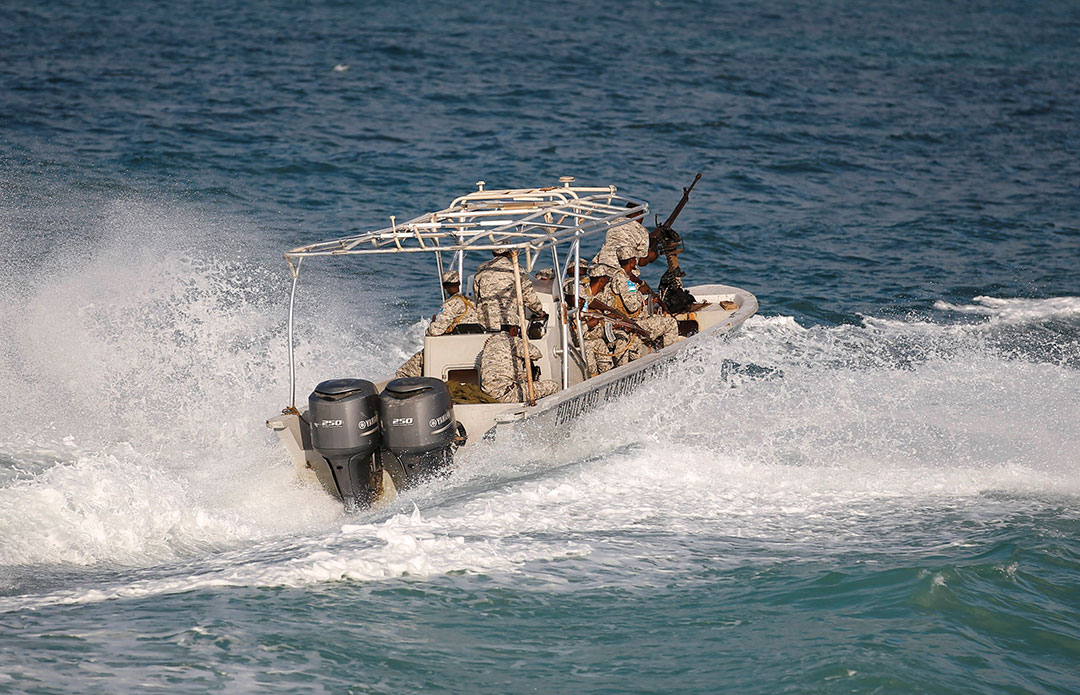
Vasu Gounden, founder of the African Centre for the Constructive Resolution of Disputes, says military strategies are moving away from conventional peacekeeping to peace enforcement. Speaking at a PPP conference in South Africa in March 2025, he said PPPs have emerged as a “crucial mechanism for equipping and modernizing defence forces to effectively handle urban warfare, counterinsurgency and counterterrorism,” according to defenceWeb.
At the conference, Derrick Mgwebi, a retired South African general, said that regional cooperation in parts of Africa remains inconsistent because of politics and bureaucratic delays. The effect, he said, is a lack of timely deployment of necessary military resources in crisis areas, defenceWeb reported. Other speakers at the conference stressed the need for PPPs in “peace building” and post-conflict reconstructions.
The Center on Global Energy Policy says that PPPs “have emerged as a key strategy to address financial bottlenecks for infrastructure projects.” So far, the center says, the performance of PPPs across Africa has been mixed. Some projects have had failings in preparation, procurement, risk management and transparency.
COORDINATED RESPONSE
Vreÿ is emeritus professor of military sciences at Stellenbosch University in South Africa. He has written and lectured extensively on the subject of PPPs and says the many maritime threats facing Africa demand a “coordinated” response.
“The responses cannot be turned back to governments to do something,” he told defenceWeb in a 2025 interview. “Governments must build partnerships with the private sector across the broad spectrum to address the complexities of these kinds of non-traditional maritime security risks and vulnerabilities.”
He said that wars, disputes and geopolitical trends in other parts of the world are forcing countries to turn back to “hard” security concerns involving traditional threats. But, he noted, Africa’s problems are different.
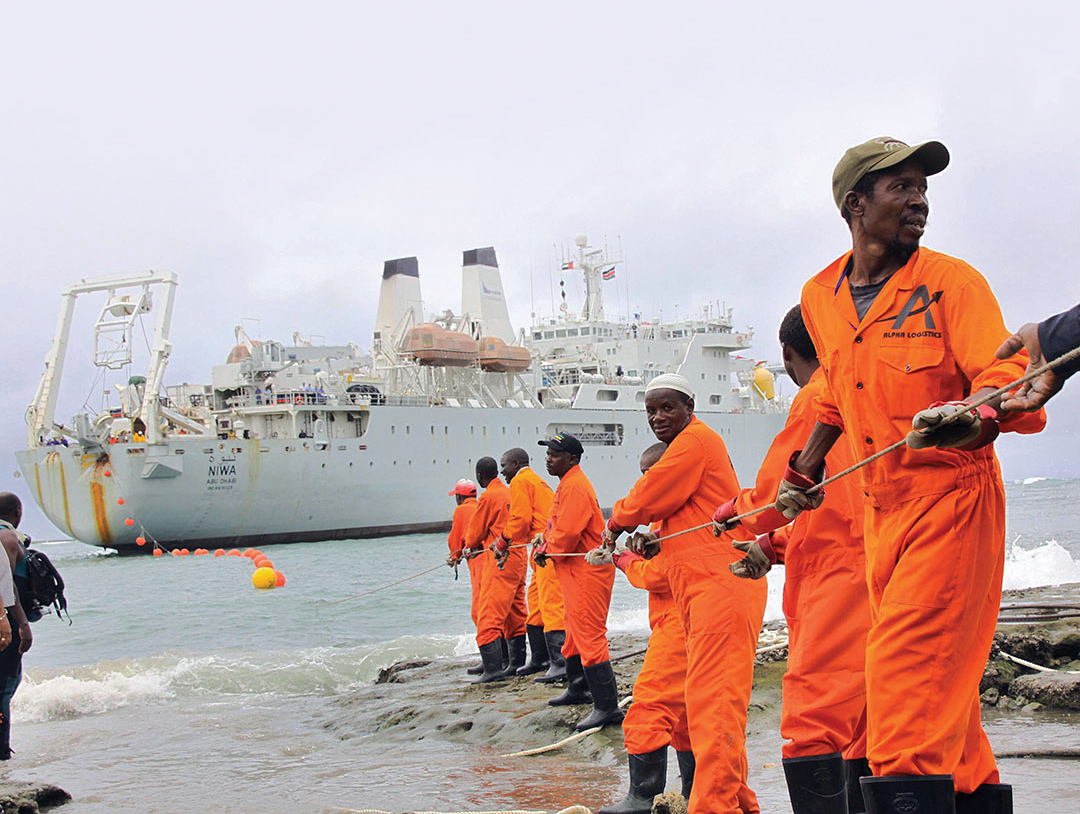
“I think that in the case of Africa, the greater balance of risks and vulnerabilities still reside on the side of non-traditional maritime security,” he told defenceWeb. “This is also where Africa and African decision makers and partners have spent much of their time over the past 10 to 15 years. I also tend to argue that it is still in the domain of non-traditional maritime security risks and threats, and vulnerabilities where African decision makers, its bodies and it littoral states must place its focus, its resources, build its capacity, and build communities of practice. Because Africa, to an extent, stands a little bit on the sidelines when it comes to the big showdowns between major entities with large navies.”
The energy policy center says PPPs demand organization and honesty. To build a PPP, the center says, requires robust upfront planning, including feasibility studies, forecasts and cost-benefit analyses. If bids are involved, they must be transparent and competitive. PPPs require “capable institutions, streamlined interagency coordination, and consistent political support” for proper execution, the center said in a May 2025 report.
Vreÿ says the Djibouti Code of Conduct and the Yaoundé Code of Conduct, which involve partnerships among countries, private companies and international organizations, are examples of successful international PPPs.
Some countries in Africa, because of their governments and business climates, are better suited for forming PPPs than are others, according to a 2025 report in the North Africa Post. Five countries, the report said, have established themselves as “continental leaders while others face significant challenges in attracting and managing private investment for public infrastructure.”
Egypt, Ghana, Morocco, Nigeria and South Africa, the Post said, lead the way, followed by Côte d’Ivoire and Rwanda. Among the countries’ strengths are “innovative contract clauses,” growth in highways and telecommunications, and “transparent partnerships.”
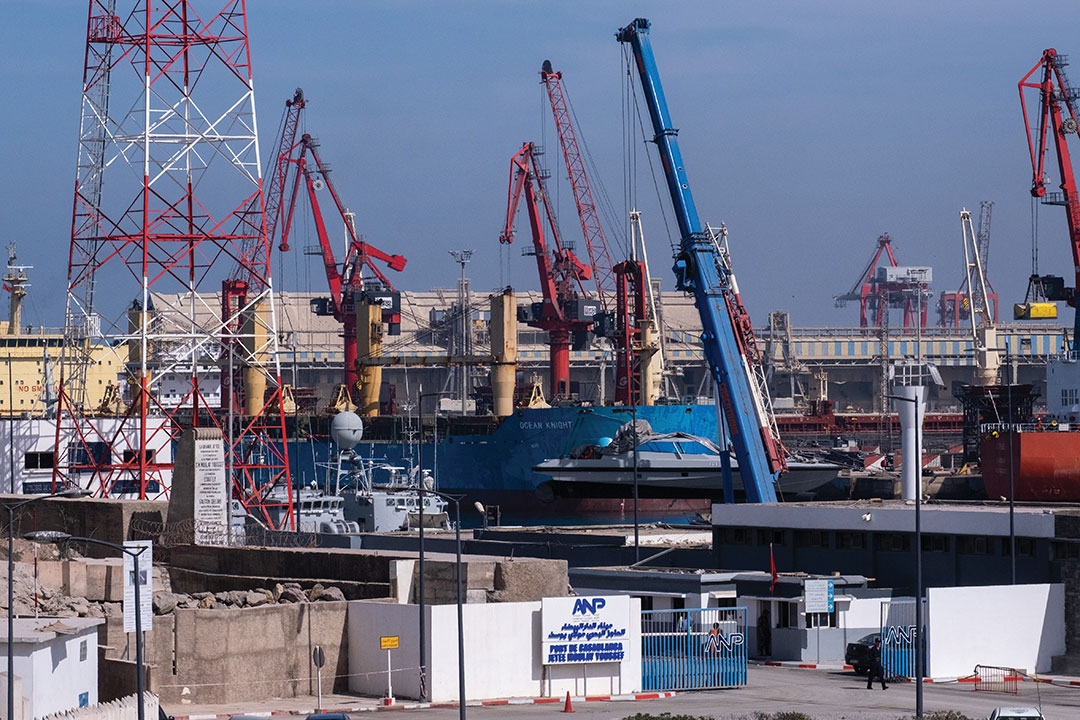
UNDERSEA BREAK
An undersea communications cable break in the eastern Atlantic Ocean in the Congo Canyon in 2023 shows the potential, and need, for PPP cooperation. An investigation showed that subsea mud and rockslides caused the break. Four systems — the West Africa Cable System, South Atlantic 3, Africa Coast to Europe and an Angolan connection — had been damaged. The Orange Marine, a ship dedicated to repairing cables off the coast of Africa, was in Kenya at the time but sailed south to fix the lines.
Although the cable damage was the result of natural causes, it served as a wakeup call to government officials about protecting subsea infrastructure, including protecting it from human interference. A 2024 study published by Trends Research and Advisory said that a subsea internet failure could pose a serious threat to the security and stability of the digital world. The study warned that terrorist attacks on undersea cables could lead to a “complete halt in digital services on a global scale, causing massive economic and social chaos.”
“This could result in disruptions to banks, businesses, and government institutions, as well as interruptions to online medical and educational services,” warned Elsayed Ali Abofarha and Hamad Al-Hosani, authors of the study.
“Such events could provoke military responses, increasing the likelihood of conflicts and international disputes,” they wrote. They cited a March 2024 incident in which three undersea cables in the Red Sea were cut, “affecting 25% of the data flow between Asia and Europe.” The incident came during Houthi terrorist attacks against international navigation in the Red Sea, “prompting the formation of investigative committees to determine whether the event was intentional or accidental, and its potential connection to Houthi terrorism.”
Repair specialists later determined that the cables most likely were damaged by the dragging anchor of the Rubymar cargo ship after it was struck by Houthi missiles, according to Data Centre Dynamics.
Such undersea cables typically are owned by corporations but are essential to modern governance. Such repairs usually are performed by other corporations and show the critical need for governments to have strong, established relationships with specialists in the private sector, even when there are no formal PPP agreements. The relationships are further complicated by the fact that such cable systems often stretch over multiple national and international jurisdictions.
“The ability to identify threats to, and vulnerabilities in, subsea data cable networks is fairly advanced,” said Vreÿ. “They are divided into natural, accidental and systemic. All three offer scope for repair interventions by way of known methods where the private sector tends to take the lead.”
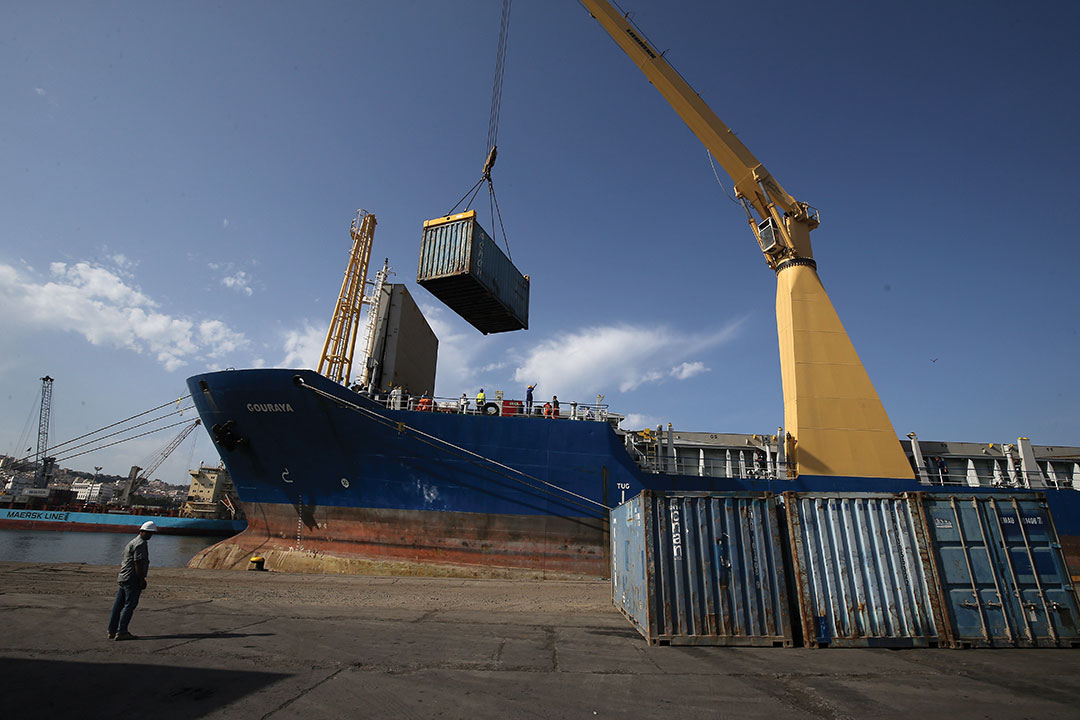
‘DEDICATED ENTITY’
Few countries can handle the expansive, interconnected issues of maritime security on their own. “No East African navy is currently capable of mounting anti-piracy operations in their waters,” wrote Vreÿ and Blaine in their 2024 study. The Houthi attacks also have shown the “suboptimal functionality of some African ports, which force ships to wait for prolonged periods outside the harbor, making these vessels more attractive for piracy and other criminality.”
Researchers say that total commitment to a security PPP is essential, even if it means adding new levels of bureaucracy.
“Having a maritime security strategy, of course, is great guidance in order to know what kinds of public private partnerships you should build,” Vreÿ said, as reported by defenceWeb. “To do this is not a simple task, as high-level public-private coordinating bodies are necessary to overcome the challenges of bureaucratic inertia, lack of trust between public and private stakeholders, and insufficient policy frameworks.”
Governments need to make partnerships a priority, Vreÿ said, by appointing a “dedicated entity to run with this,” instead of simply making it part of a larger security strategy, or just “an agenda point within a much larger agenda.”
“There needs to be a very definite entity that runs reports overseas and helps push forward the development of a maritime security strategy,” he said.

